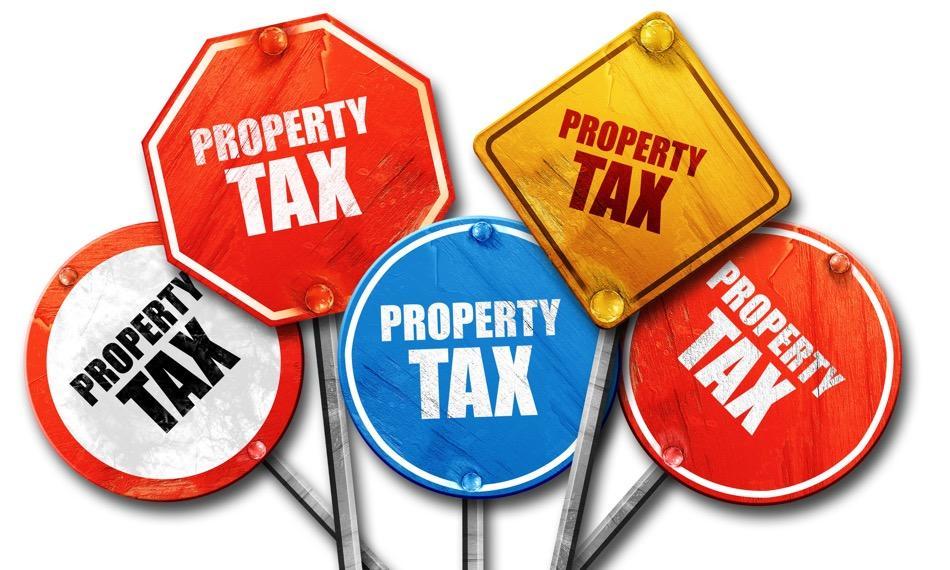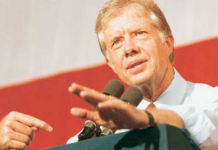By John Hendrickson, Dave Trabert, and Jonathan Williams
“Many Iowans like myself would like some relief from high property taxes. We are all struggling with extremely high prices for food, gas, electricity, etc. How are we supposed to live and keep our homes?” asked a concerned taxpayer. Taxpayers across Iowa are demanding relief from high property taxes. Taxpayers deserve a solution and Iowa can learn from other states that have delivered property tax relief.
This may come as a shock but elected officials in over 20 counties are not increasing property tax this year. That’s very good news. The bad news is that those counties are in Kansas, not in Iowa.
Kansas legislators last year passed the Truth in Taxation Act, which requires elected officials to be honest about the entire property tax hike they impose. Every local entity’s mill levy is reduced each year so new valuations bring in the same dollar amount of property tax. If local officials want more tax revenue, they must notify taxpayers of their intent, hold a public hearing on the proposed increase, and then vote to create a public record.
Kansas elected officials can no longer claim to be holding the line on property tax while reaping big gains from valuation increases. And now that they must be honest about tax increases, a lot of local officials in Kansas decided they don’t need to increase tax burdens this year.
The Kansas law also has a strong enforcement mechanism if local governments do not comply with the law. Any entity that does not follow the law is not allowed to increase property taxes. If they did before a court rules them out of compliance, then that taxing authority must refund the money or apply it to the next year’s tax.
This year the Iowa legislature passed a historic income tax reform measure that creates a flat individual income tax rate of 3.9 percent by 2026 and will gradually phase down the corporate rate to a flat 5.5 percent. Now, the legislature would be wise to follow this important taxpayer victory up with delivering a solution that will address high property taxes. In 2019, the legislature passed a property tax transparency and accountability measure, which included some elements of Truth-in-Taxation.. The 2019 law was a good first step, but more work is needed to ensure Iowa follows successful examples like Kansas’ property tax reform.
A strong Truth-in-Taxation law features a direct notification requirement, ensures taxpayers receive notice informing them of how much a potential tax increase will impact their tax bill. It also has a revenue neutral component where taxing authorities receive the same amount of revenue as the previous year and if they want to increase their budget it will trigger a Truth-in-Taxation hearing, which will also require elected officials to take a recorded vote on the potential increase.
Some local government officials will most certainly complain that direct notification will cost too much to send taxpayers a letter about their intent to raise property taxes. First of all, cities and counties have no cost unless they choose to increase property tax. If they do, they should be able operate a little more efficiently and use the savings to cover the small cost of Truth in Taxation. And isn’t it interesting that cost is of little concern for projects that cities and counties favor; ‘too expensive’ is often the excuse for not doing something they don’t want to do.
But the real reason for their opposition may be the same as in Kansas: some local officials argue that taxpayers do not understand what needed to be done, and they might not be able to raise taxes as much if forced to be honest about the property tax burden increase.
Truth in Taxation is the gold standard for property tax relief. It has saved Utah and Tennessee taxpayers hundreds of millions over the last 30 years, and now it is providing Kansas taxpayers with substantial tax relief in these uncertain economic times. This year, Kansas legislators made it even better. A state website will house everything in one place. Taxpayers can find the tax increase for every local entity within each county, and they will also be able to see whether each elected official voted for or against the tax hike. Iowa can learn from both Utah and Kansas.
Take a look at your property tax notices to see how much your tax has increased, and then ask your elected officials if they will reduce the mill levy to offset the increase. Anything other than a firm ‘yes’ means more hikes are on the way.
Addressing high property taxes takes real courage but it is the right thing to do. Providing truth in taxation is the best way to provide long-term relief from property tax burdens.
John Hendrickson is policy director for Iowans for Tax Relief Foundation, Dave Trabert is CEO of the Kansas Policy Institute, and Jonathan Williams is chief economist and executive vice president of policy at the American Legislative Exchange Council.
















